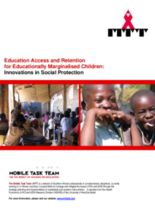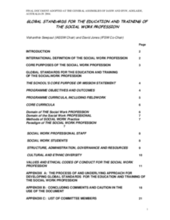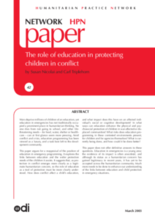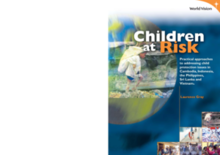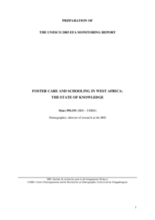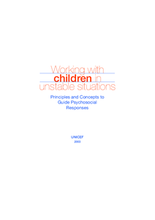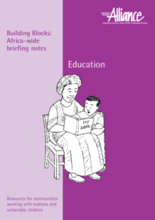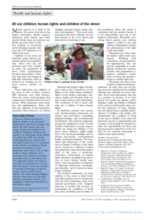Displaying 331 - 340 of 350
Comprehensive toolkit and resource pack for mobilising community-led OVC care. Includes detailed resources for training home visitors.
This paper provides a comprehensive contextual overview of the educational challenges faced by orphans and vulnerable children in sub-Saharan Africa. It includes recommendations for future education policy in the context of HIV and AIDS, as well as provides country specific data on current policies and social protection programs.
Evaluation of the Bolsa Escola Program, which was a Brazilian social services program that provided cash transfers to families provided that their school-aged children would be enrolled in and attending school. Examines how beneficiaries were selected, registered, and monitored. Cites inconsistencies in implementation and roles of municipal governments as significant finding.
Outlines a set of global standards for schools of social work.
Examines the link between education and the protection needs of children, with a particular focus on the role of education in emergency response.
Discusses approaches to protecting at-risk children in five Asian countries. Identifies programming and policy measures that effectively address child abuse. Emphasis on committing all levels of society to coordinated practical response.
Explores the relationship between fostering and education in West Africa. Identifies special need to focus on protecting and educating young girls.
Discusses the psychosocial impacts of unstable situations on children and their families, with an emphasis on child development. Includes UNICEF’s position on policy and programming principles as well as strategies to address the psychosocial needs of children, families, and communities.
Outlines the impact of HIV/AIDS on children’s education and suggests strategies for meeting children’s educational needs. Includes a list of follow-up resources.
Brief article arguing for doctors to take a lead role in caring for children on the street. Suggests that physicians could provide direct patient care, advocacy for children's rights, and leadership for reform at the community and national level.


